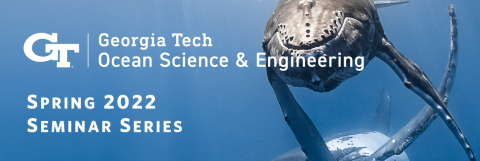event
The Spring 2022 OSE Seminar Series w. Invited Speaker Kyungmin Park
Primary tabs
Modelling & Forecasting Flood Hazards for Coastal Solutions
The dynamics controlling the spatial and temporal expressions of extreme water levels and floods over the coastal wetlands and communities are complex and not well understood due to the limitations of current technologies. One of the challenges in the technologies is limited spatial information that cannot properly capture the dynamics of water levels around residential areas. Leveraging a newly developed high-density network of water level sensors and a city-scale coastal ocean model, this research provides high-resolution information to analyze the underlying drivers of flooding and extreme water levels, and to precisely predict the coastal hazards caused by natural catastrophes. For example, the new frameworks are deployed on the Georgia coast in the U.S. to investigate the flooding drivers during extreme weather events. A set of analyses for the historical events reveals the dominant role of the oceanic adjustment by the hurricane (e.g., coastally trapped signals and change in large-scale ocean circulation) compared to hurricane-induced winds. This result gives new insight into the mechanism of flooding during extreme events. In addition to the analysis of historical events, the model plays a key role in a 3-day forecast system including an early warning system. Predicting the extreme water level with high accuracy, the forecast system has helped decision-makers better prepare for these hazards on the Georgia coast. Given that the Georgia coast is representative of coastal communities along the U.S. southeast coast, the developed tools will be applicable in other coastal cities and help to optimize coastal protection and resiliency against flooding.
Status
- Workflow Status:Published
- Created By:belnaggar3
- Created:02/03/2022
- Modified By:belnaggar3
- Modified:02/03/2022
Categories
Keywords
Target Audience

